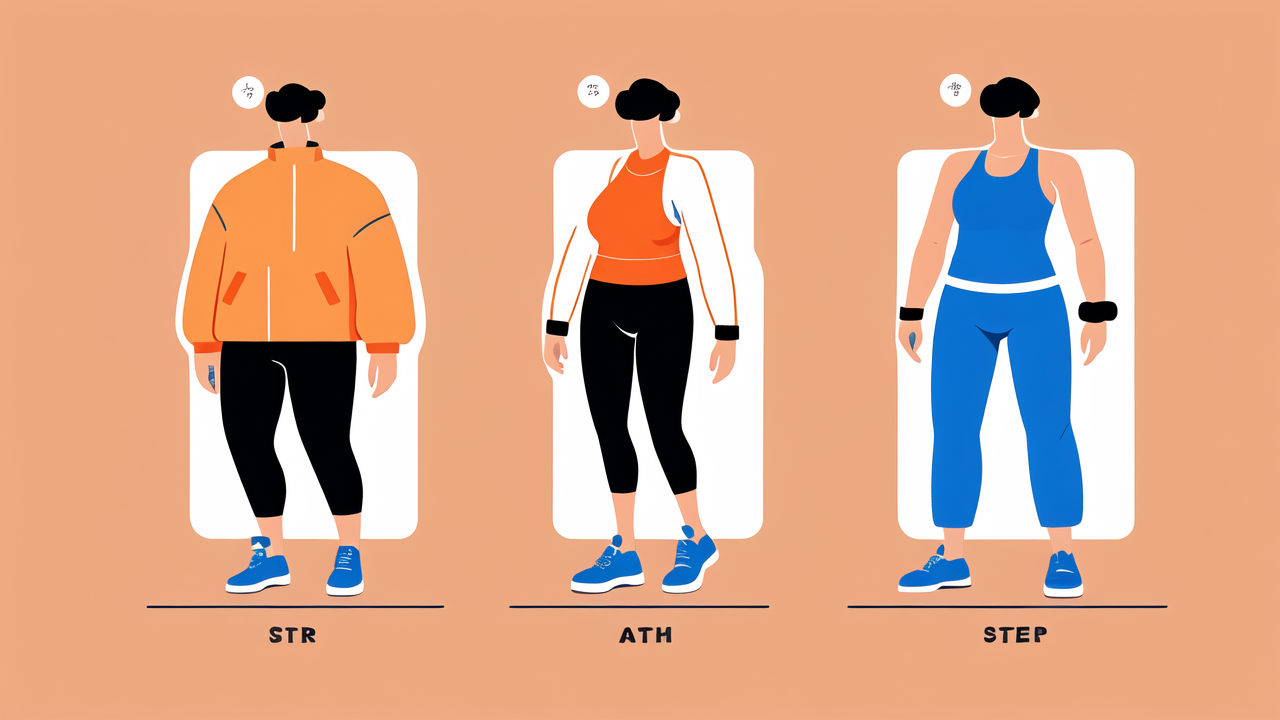The Rise of Wearable Technology in Fashion and Wellness
Understanding the Evolution of Fitness Wearables
Fitness wearables have come a long way since their inception. They started as simple step counters. Now, they're advanced devices that track various health metrics. The journey began with basic pedometers. These evolved into more complex fitness bands. Today, we have smart watches and body measurement trackers.

These devices now offer features like:
- Heart rate monitoring
- Sleep tracking
- Calorie counting
- GPS tracking
- Stress level monitoring
The evolution of these devices reflects our growing interest in health and fitness. They've become more accurate and user-friendly over time. Many now sync with smartphones, making data easy to access and analyze.
The Impact of Body Measurement Tracking on Lifestyle and Clothing
Body measurement trackers are changing how we approach fitness and fashion. They provide detailed data about our bodies. This information helps us make informed decisions about our health and style choices.
In terms of fitness, these trackers offer personalized insights. They show us how our bodies respond to different exercises and diets. This data helps us tailor our fitness routines for better results.
For fashion, body measurement trackers are revolutionizing how we shop for clothes. They provide accurate measurements, making online shopping easier. Some apps even suggest clothing styles based on body shape and size.
These trackers are also influencing the clothing industry. Brands are using this data to create better-fitting clothes. They're developing sizing systems that cater to diverse body types.
The Intersection of Fashion and Functionality: Body Measurement Trackers
Balancing Aesthetics and Health in Wearable Technology
Body measurement trackers are no longer just functional devices. They're now fashion accessories too. Designers are creating trackers that look stylish and perform well.

Many trackers now come in sleek, minimalist designs. They blend seamlessly with different outfits. Some even resemble jewelry, like rings or bracelets.
Color options have expanded beyond basic black. You can now find trackers in various hues to match your style. Some brands offer customizable bands or faces.
Despite the focus on looks, these devices don't compromise on function. They still provide accurate health data. The challenge for designers is to create devices that are both attractive and effective.
Some brands are partnering with fashion houses to create luxury trackers. These collaborations bring together tech expertise and design know-how.
How Smart Watches are Revolutionizing the Fashion Industry
Smart watches have become more than just tech gadgets. They're now fashion statements. Many people choose their smart watch based on both style and features.
The fashion industry is taking notice of this trend. Major fashion brands are entering the smart watch market. They're creating devices that combine high-tech features with high-end design.
Smart watches are influencing traditional watch design. Many classic watch brands now offer smart features. This blend of old and new appeals to a wide range of consumers.
These devices are also changing how we accessorize. A smart watch can be a versatile piece that works with many outfits. Some even offer changeable straps to match different looks.
The rise of smart watches is pushing the boundaries of wearable tech design. We're seeing more creative and fashion-forward options. This trend is likely to continue as technology advances.
Regulatory and Ethical Considerations for Body Measurement Trackers in the United States
Navigating the FDA Regulatory Landscape for Wearable Devices
In the US, the FDA plays a key role in regulating wearable devices. The level of regulation depends on the device's intended use. Some trackers are considered low-risk and face less scrutiny.

Devices that make health claims undergo more rigorous review. The FDA wants to ensure these claims are accurate and safe. This process can be lengthy and costly for companies.
Many body measurement trackers fall into a gray area. They provide health data but don't diagnose conditions. The FDA is still working on clear guidelines for these devices.
Companies must be careful about how they market their trackers. Making medical claims without FDA approval can lead to penalties. This challenge has led to creative marketing strategies.
The regulatory landscape is evolving as technology advances. The FDA is working to keep up with new developments. Their goal is to ensure consumer safety without stifling innovation.
Protecting Consumer Data and Ensuring Privacy in Fashion Tech
Privacy is a major concern with body measurement trackers. These devices collect sensitive personal data. Companies must handle this information responsibly.
In the US, there are laws that protect consumer data. The Health Insurance Portability and Accountability Act (HIPAA) is one example. It sets standards for handling health information.
However, not all trackers fall under HIPAA. This creates a complex landscape for data protection. Companies often create their own privacy policies to address these issues.
Consumers are becoming more aware of data privacy. They want to know how their information is used and stored. This has led to more transparent practices from many companies.
Some key privacy considerations include:
- Data encryption
- User consent for data sharing
- Options to delete personal data
- Clear terms of service
As fashion tech evolves, so do the ethical questions around it. The industry must balance innovation with respect for privacy. This balance will be crucial for the continued growth of body measurement trackers.




Leave a comment
This site is protected by hCaptcha and the hCaptcha Privacy Policy and Terms of Service apply.